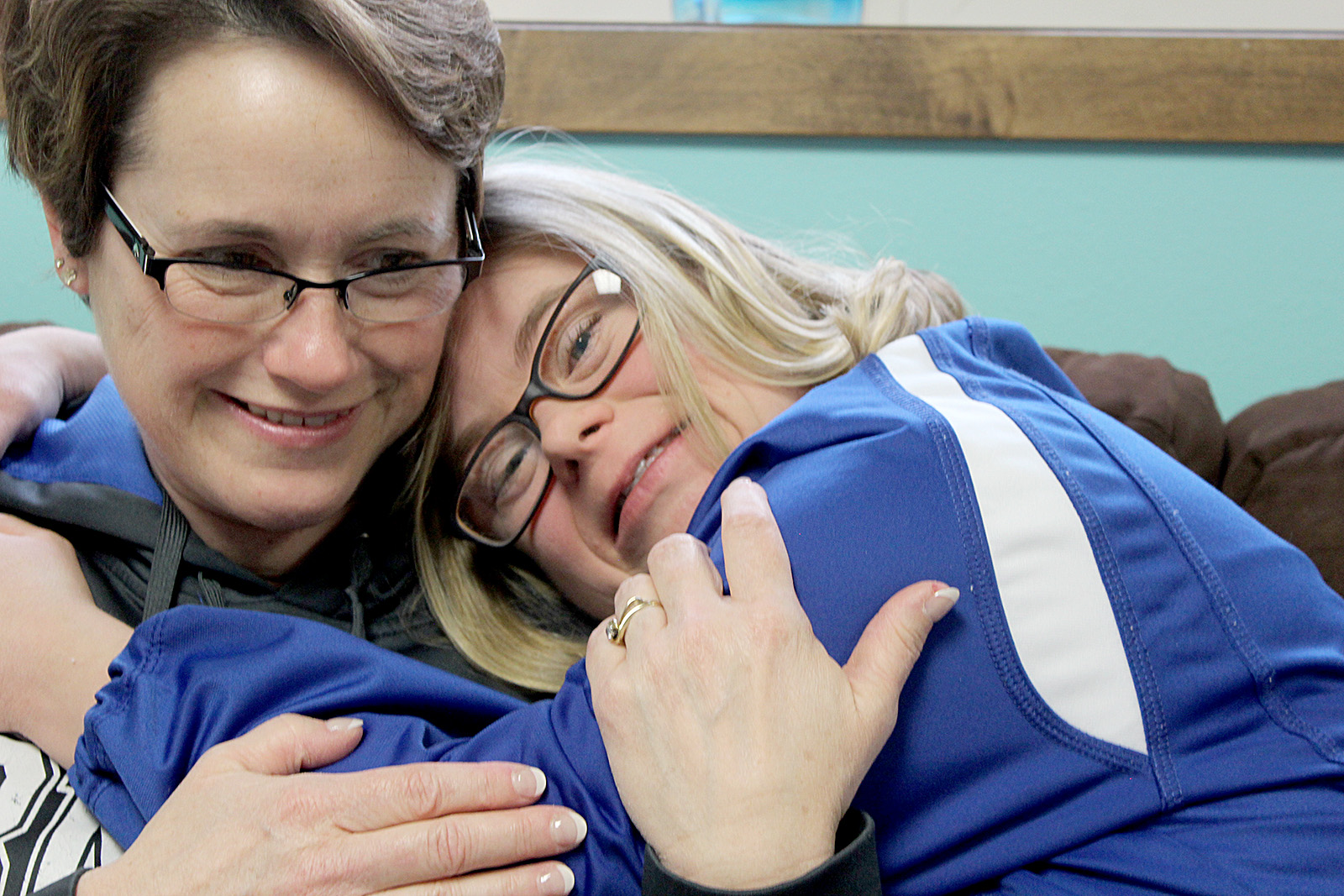 ,
, 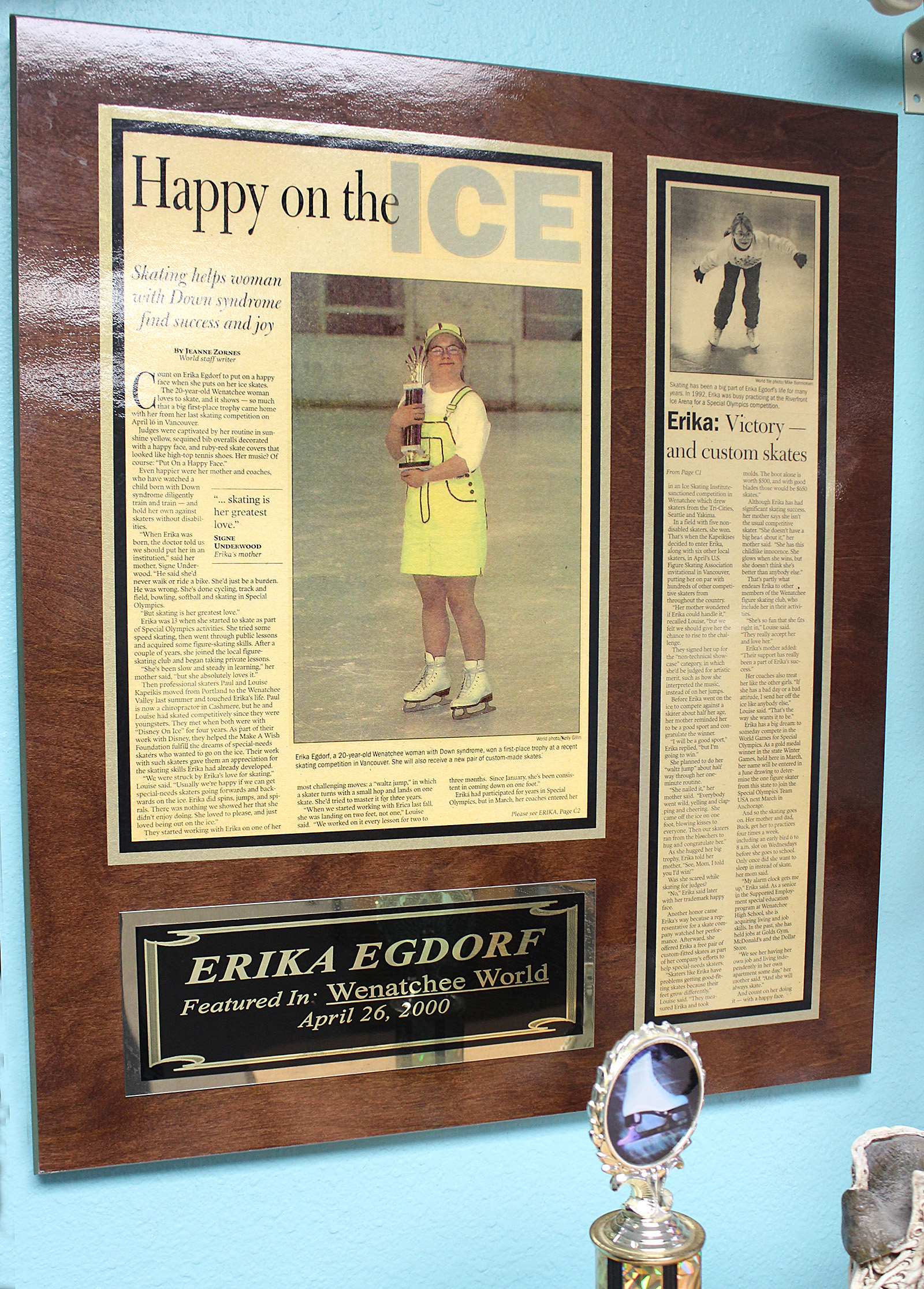 ,
, 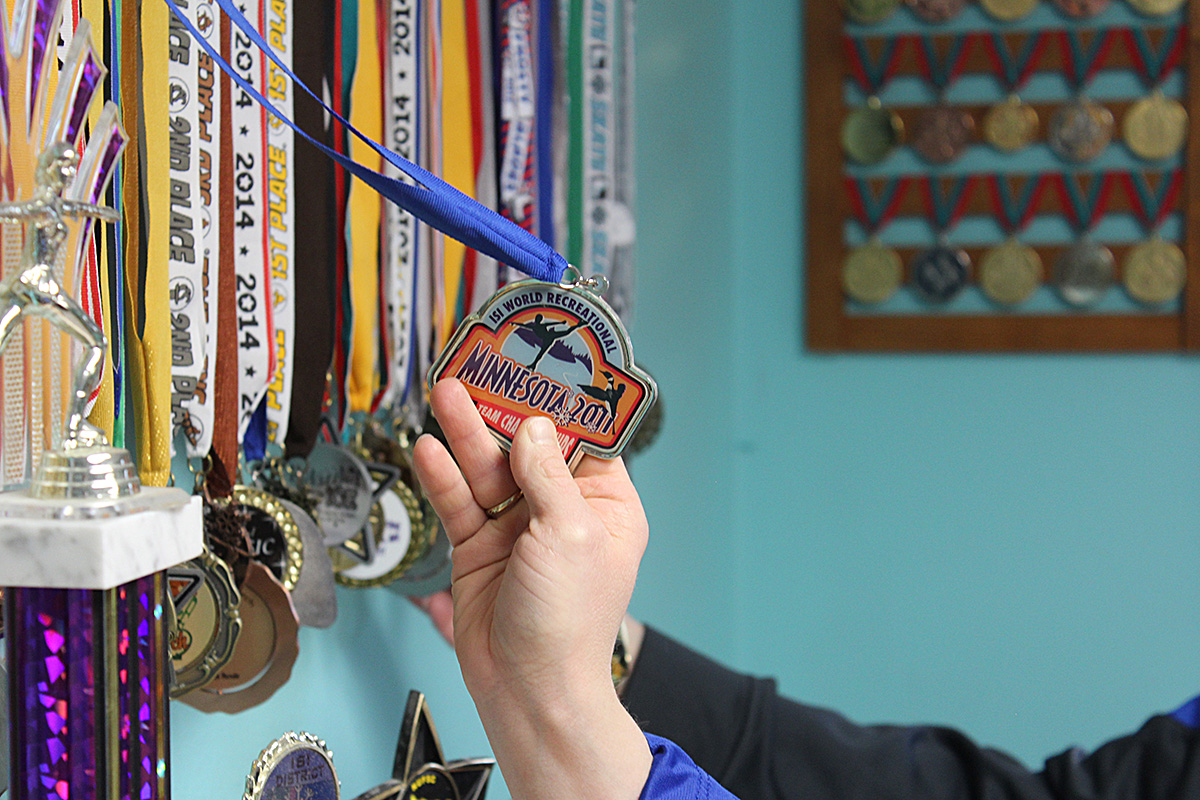 ,
, 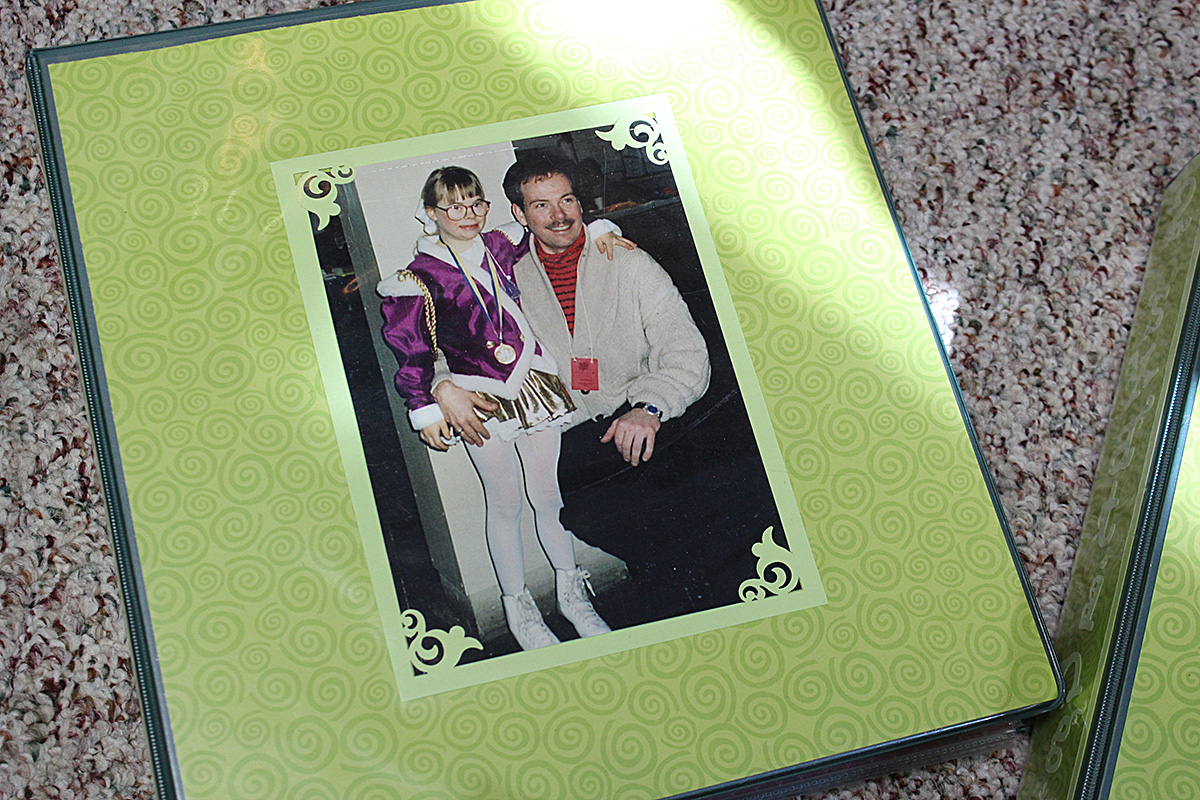 ,
, 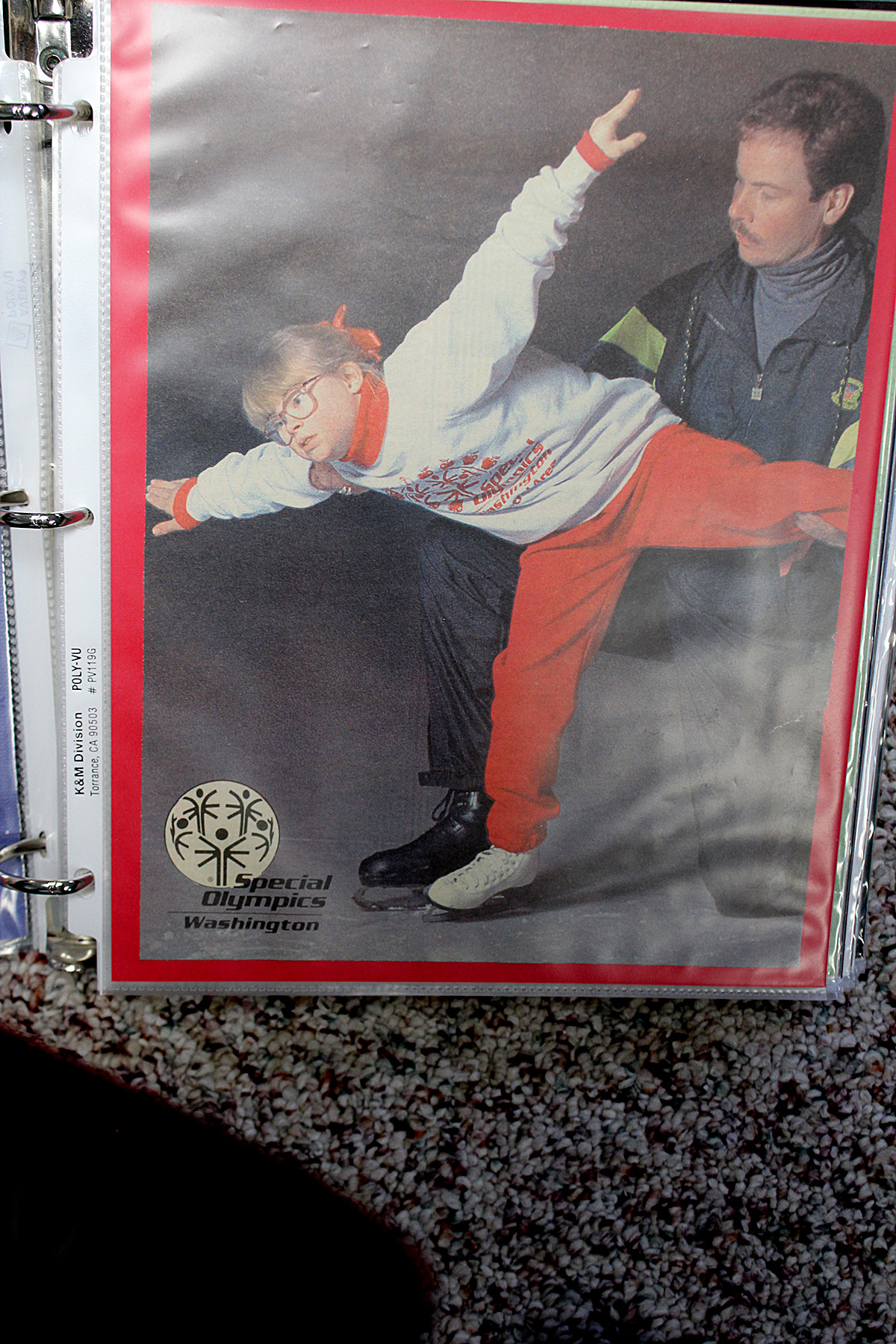 ,
, 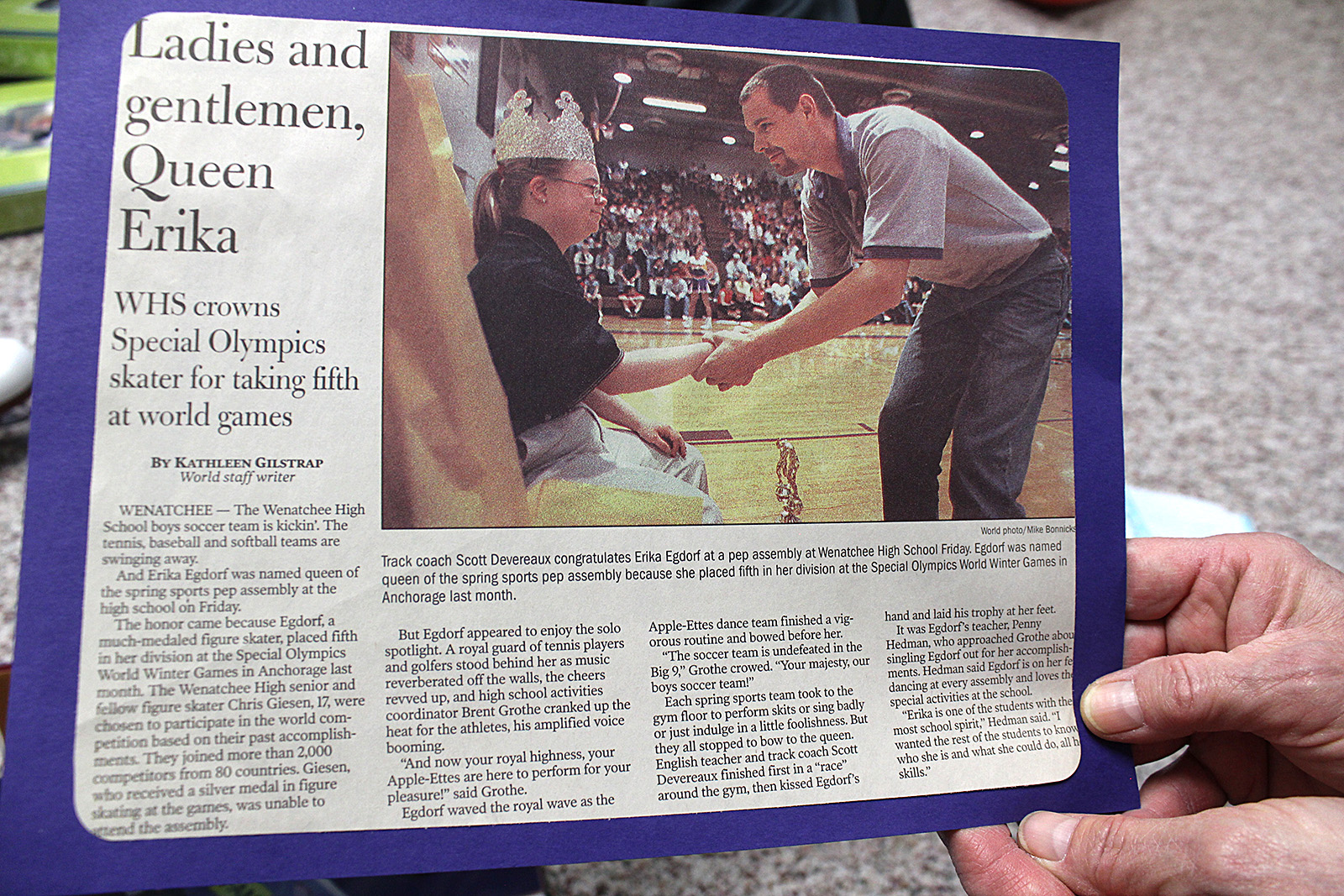 ,
, 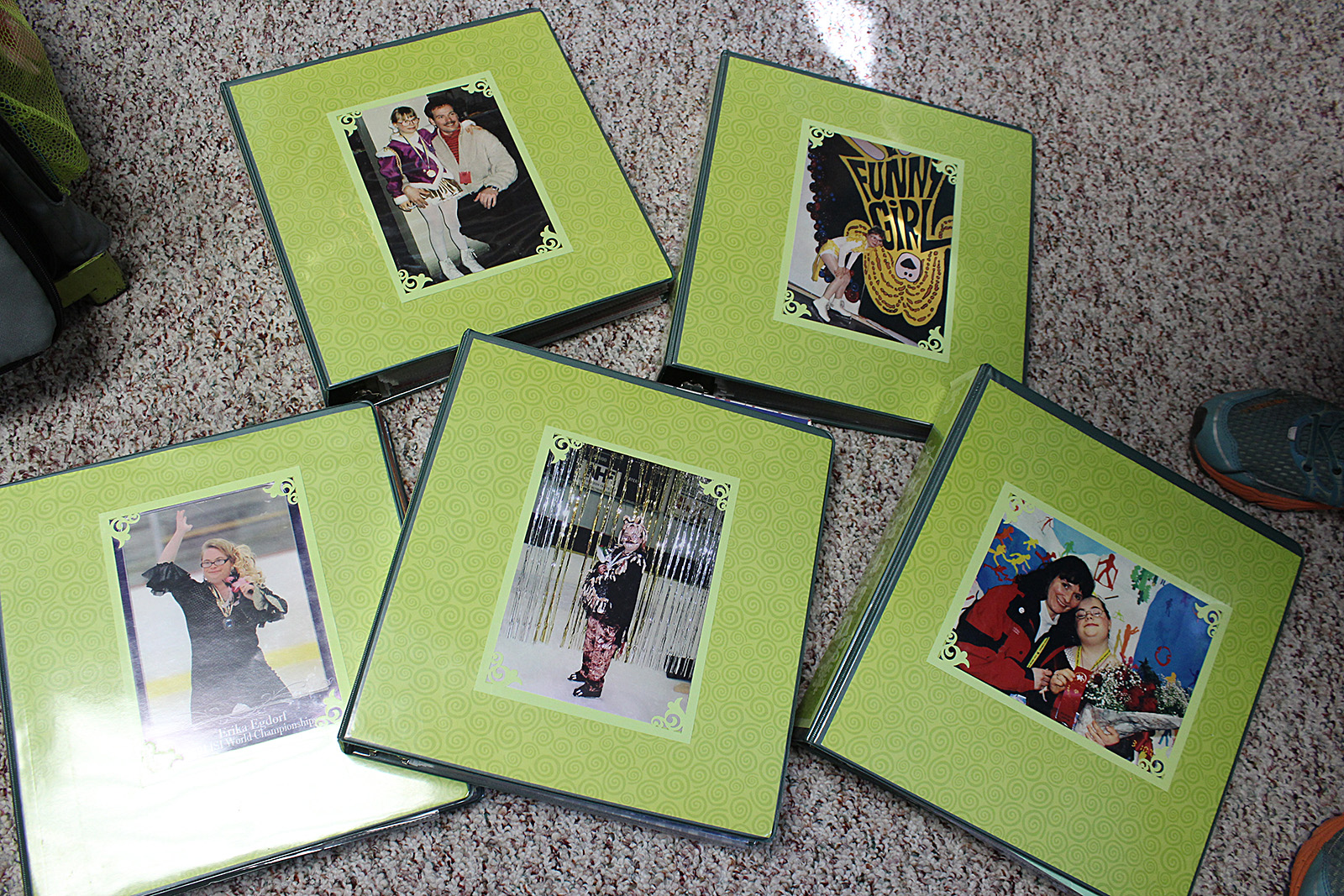 ,
, 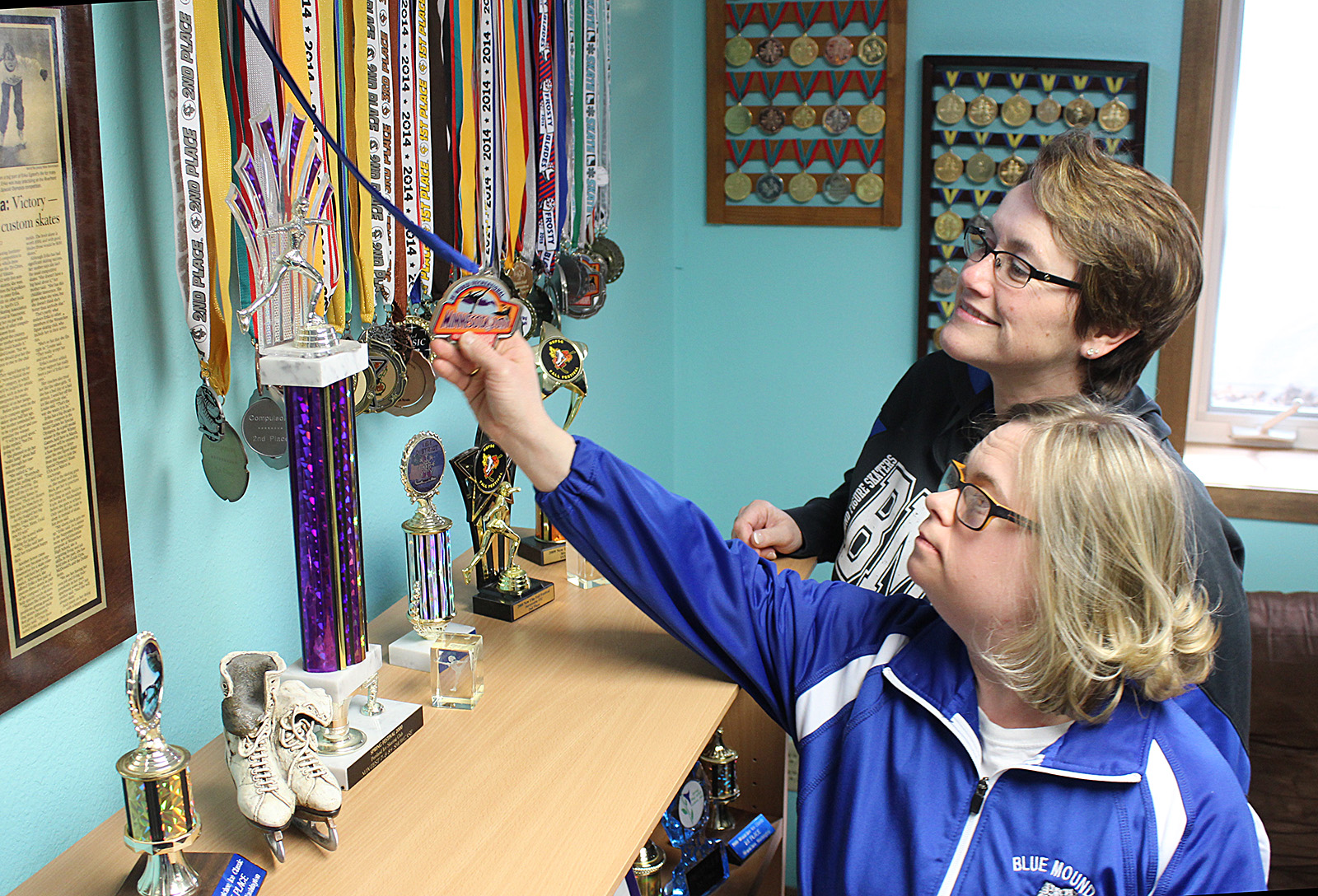 ,
, 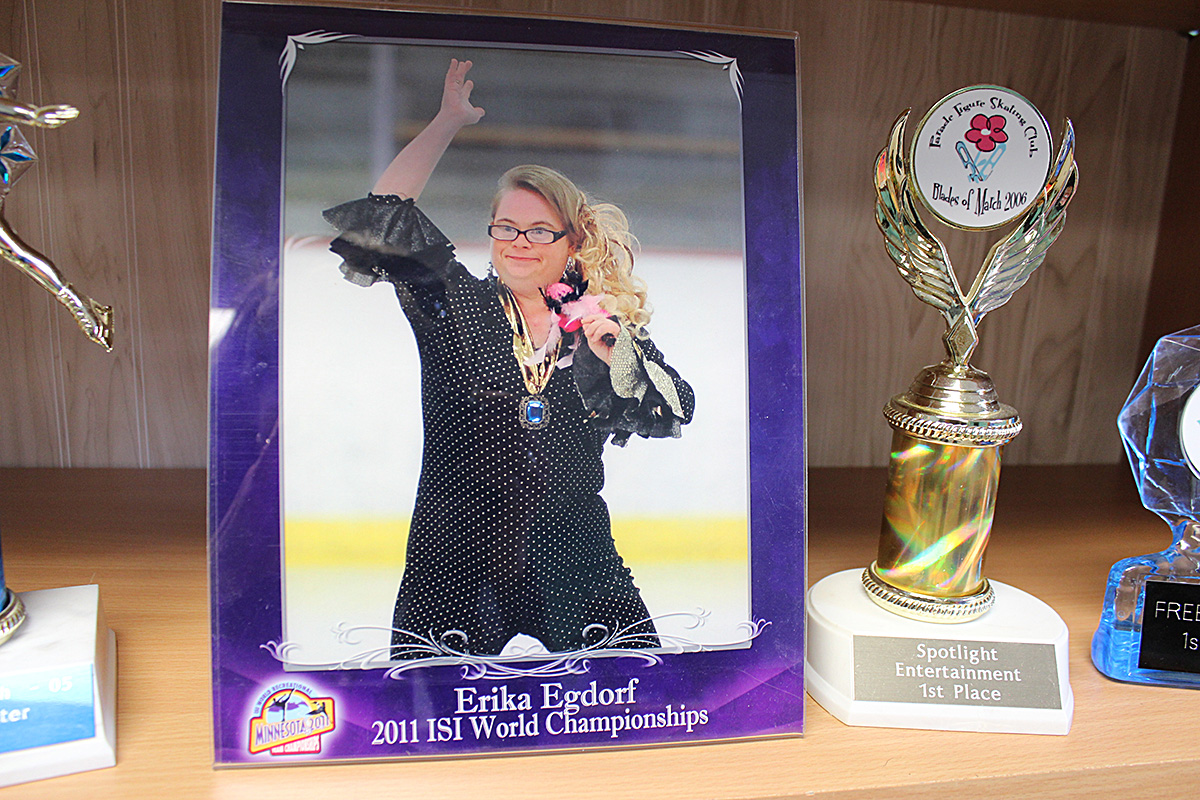 ,
, 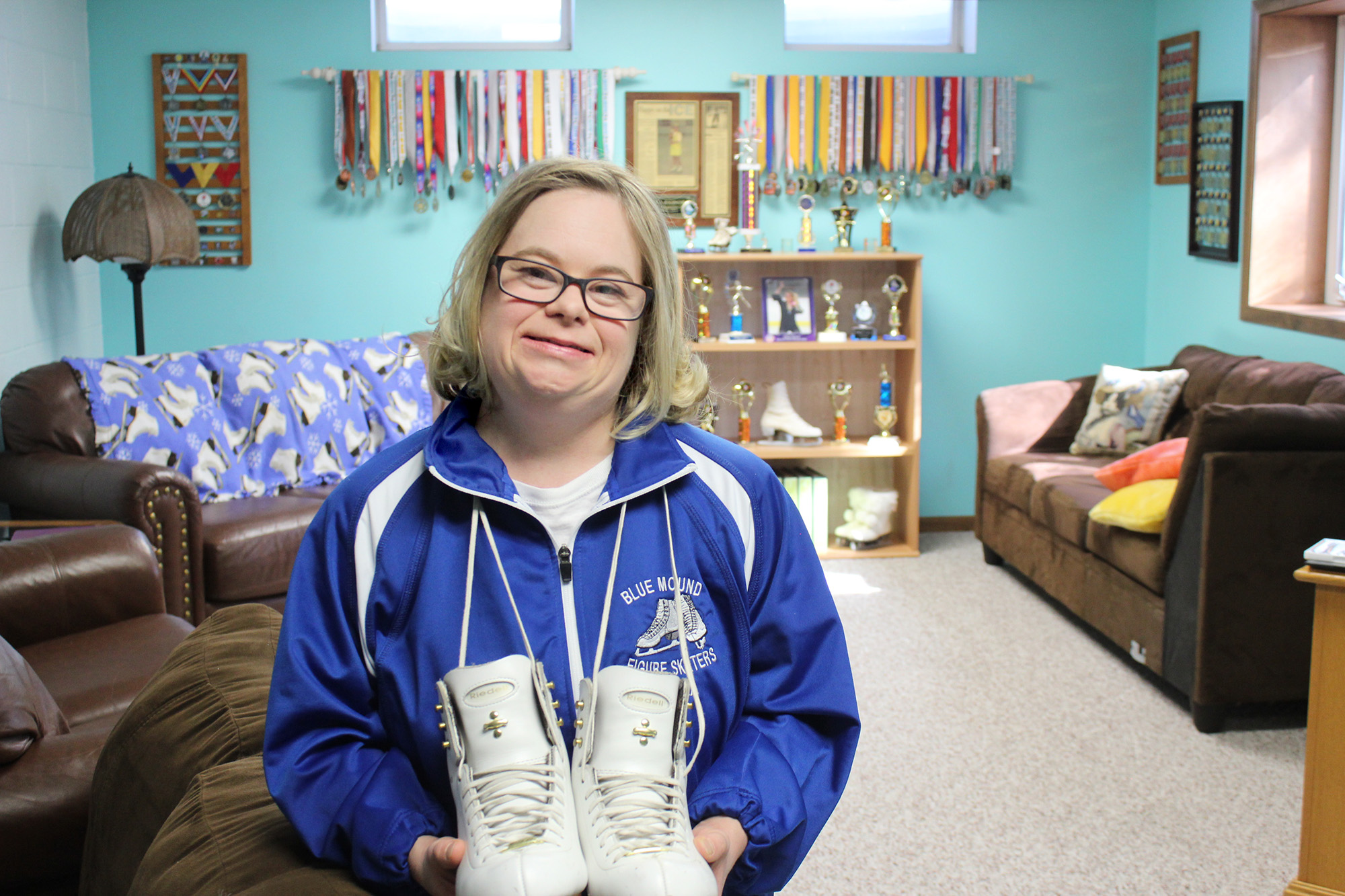 ,
, 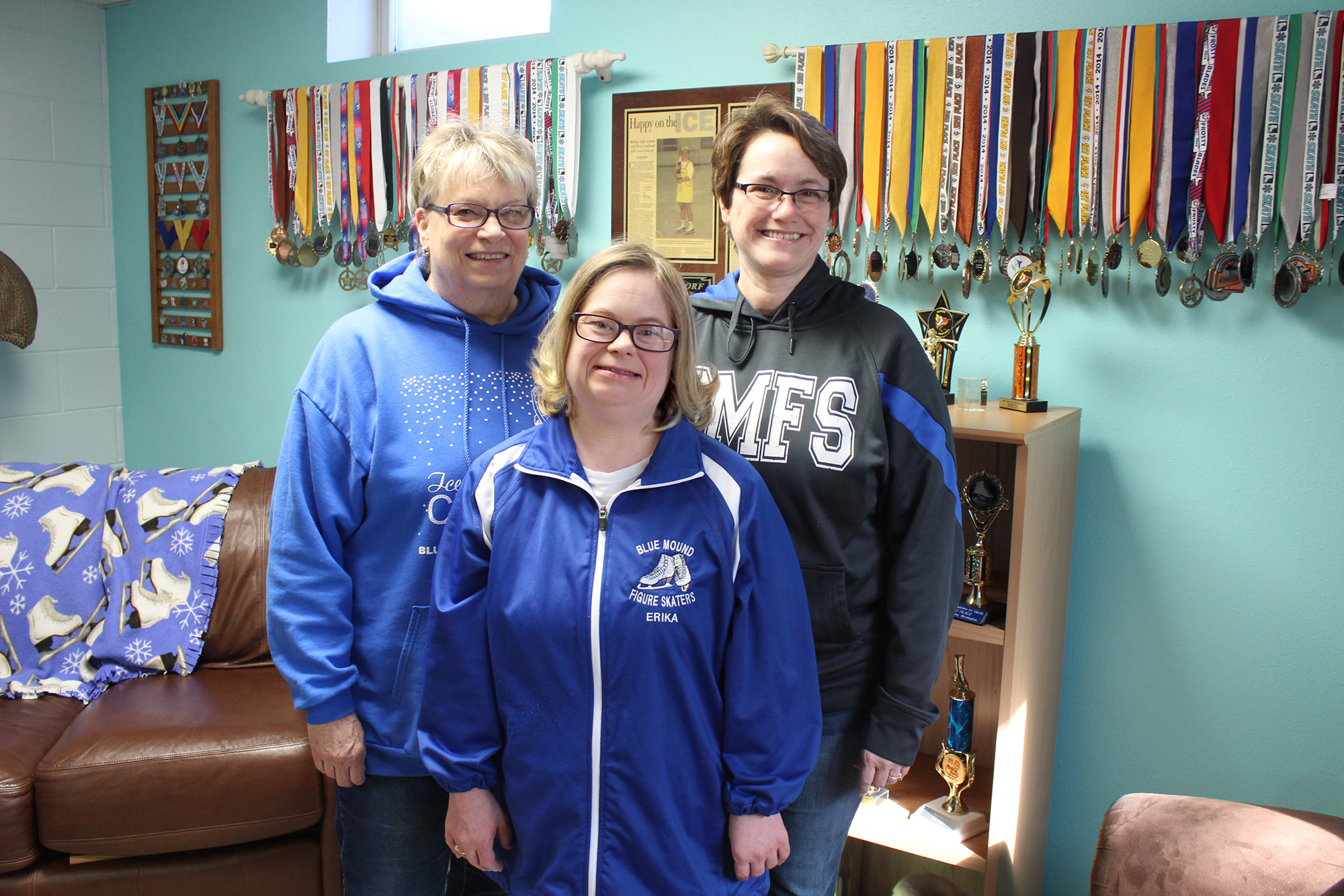 ,
, 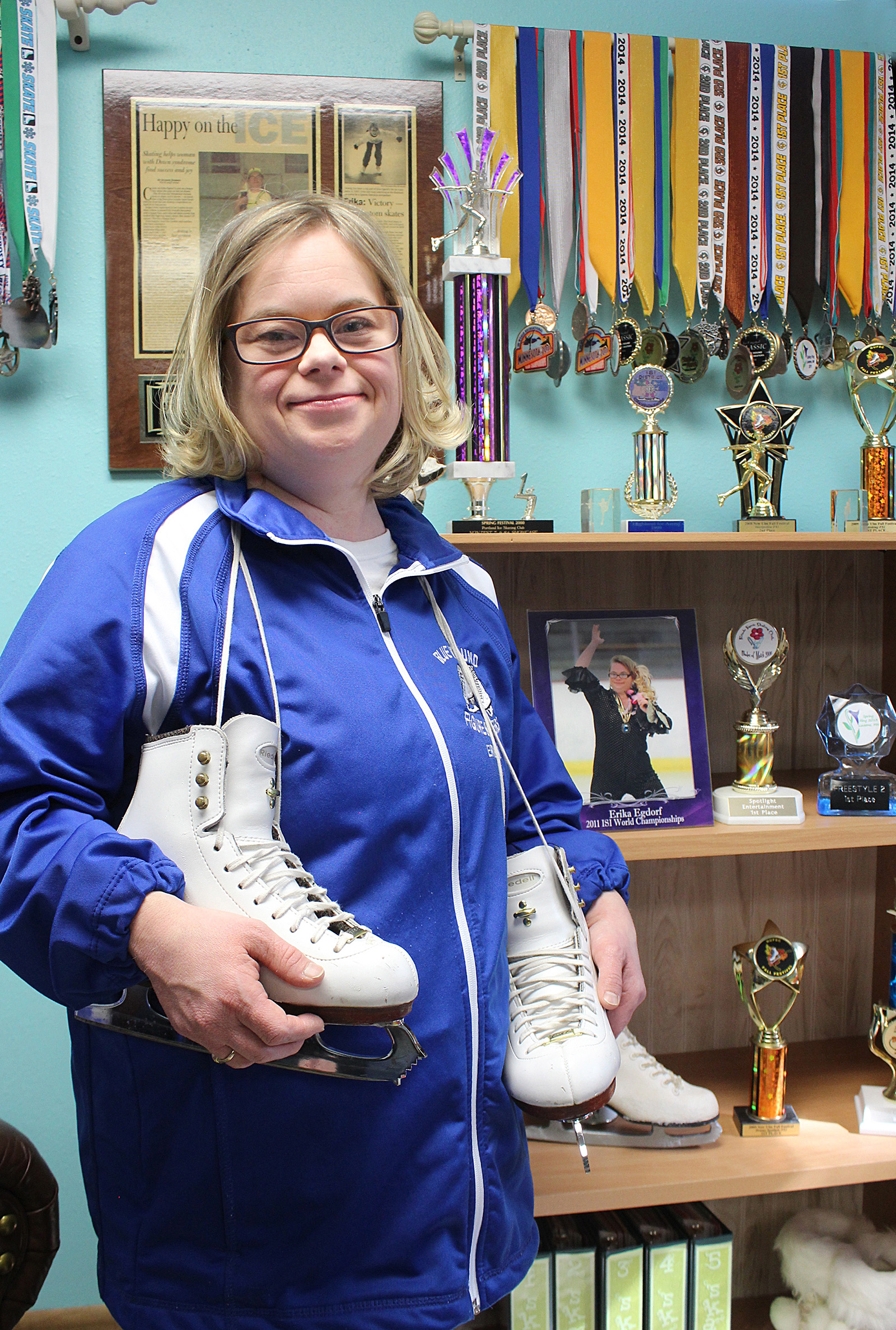
After 24 years of skating, Luverne's princess of the ice rink is retiring her skates.
A hobby turned competitive passion has filled a room with trophies and medals and provided a source of self-esteem for a woman born with Down syndrome.
"I just really love it," said Erika Egdorf when asked why she's kept it up for so many years.
Her mother, Signe Underwood, said skating has played an important role in making Erika who she is today. "It's been her life," she said.
This weekend will be one of Erika's biggest skating events of her lifetime — a farewell performance during the Blue Mound Figure Skaters' annual spring show in Luverne.
"She's 36 now," Sig said, "and we want her to go out on a high note."
For the spirited skater who's known for her smiles and generous hugs, this weekend's show will be just another opportunity to shine on the ice.
But it will mark the end of another chapter in Erika's life story of overcoming obstacles.
‘She’ll probably never walk’
Erika was born in a remote village in Alaska where her father was a bush pilot.
"The doctor looked at her and told us she'd probably never walk; that we should put her in an institution," Sig said. "He said she was the ugliest baby he'd ever seen."
Today, Sig said she'd like to find that doctor and show him all that her daughter went on to accomplish.
She mastered swimming, bicycling, track and field, bowling, softball and — of course — skating. "Skating is her love," Sig said.
It’s a passion that’s taken her to Seattle, Washington; Portland, Oregon; Pentiction, Canada; Chicago, Illinois; and Anchorage, Alaska.
Erika's tenacity clearly comes from Sig, who as a single mom moved her little family — baby Erika and a young son, Adam — from Alaska to Wenatchee, Washington.
She went back to college to be a registered nurse, and in 1992, she married Buck Underwood.
It was in Washington that Erika, at age 12, first tried skating through a school Special Olympics activity.
"The school took them to the ice rink in a bus," Sig said. "I would have never known she could skate otherwise."
Erika learned speed skating first.
"She was really fast," Sig said. "She got first every time; she would even beat the boys."
Erika giggled at this story. "Mom!" But she admitted it was true. She was fast.
Then through public lessons, she learned figure skating and joined the local figure skating club where private lessons were offered.
A professional figure skating couple who helped coach special needs skaters noticed Erika's natural talent and were impressed by what she could do.
"We were struck by Erika's love for skating," they were quoted as saying in an April 26, 2000, Wenatchee newspaper article.
"Usually we're happy if we can get special needs skaters going forward and backward on ice. Erika did spins, jumps and spirals. There was nothing we showed her that she didn't enjoy doing. She loved to please and just loved being out on the ice."
Skating in the big leagues
For years Erika competed in — and dominated — Special Olympics skating competitions, but around 1995 her coaches entered her in a competition with non-disabled skaters, and she won.
That's when her coaches entered her in the U.S. Figure Skating Association invitational in Vancouver where she would compete with hundreds of skaters from around the country.
Before she went out on the ice, Sig reminded her daughter to be a good sport and congratulate the winner. Erika replied, "I will be a good sport, but I am going to win."
And she did.
She skated off the ice while blowing kisses to wildly cheering fans.
In addition to winning a big trophy that day, her performance caught the attention of a Klingbeil Skates representative.
Sig said the prestigious company makes only custom-made skates, and they offered to have a free pair of custom skates made for Erika.
This was quite a gift, Sig said, because Erika has Raynoud's syndrome, a circulation disorder, and she suffers from Lupus.
So the custom skates (valued at over $600), with their insulated soles and sheepskin lining, were a significant gift. Another skate manufacturer, Riedell, later arranged a similar gift for Erika.
From there, Erika's successes kept building on each other.
After winning gold in the Washington State Winter Special Olympics Games in March 2000, she qualified to compete with the Special Olympics Team USA in Anchorage, Alaska, for the World Winter Games in March 2001.
"That's a once-in-a-lifetime opportunity," Sig said.
She joined more than 2,000 competitors from 80 countries. Of that total, 160 were figure skaters, with the United States sending 20.
It was a 10-day event, and Sig said the experience almost got the best of Erika.
"We felt we had prepared her, but we did not realize the immense amount of people," she said. “They called Erika to the ice — twice, and there was no Erika."
Sig said she raced to the staging area where she found Erika had become ill. "I think I drank too much water," Erika said. But her mother suspected nerves.
Regardless, when Erika skated out on the ice and her music started, the jitters gave way to instincts, and her performance earned her a fifth-place medal out of seven.
“Once she heard the music she was fine,” Sig said.
Welcome to Luverne
In 2002 they moved to Luverne to be closer to Sig's hometown of Worthington.
“This is the best place to live,” Sig said. “It feels like living in Mayberry … People are close and friendly. In a big city you don’t see that.”
They instantly appreciated the Blue Mound Ice Arena and the Blue Mound Figure Skating Club.
"I am so impressed with the Luverne rink and the Blue Mound Figure Skating Club," Sig said. "Luverne should be really proud of what they've done here."
Erika had her own apartment for 11 years (now she has roommates in an HSI home in town), and when she wasn't working (at RCO, McDonald’s and Glen’s) she was skating.
Her longtime coach Cathy Shearer said Erika has been a joy to work with.
"She never has a bad day," Shearer said about Erika's sunny disposition.
Sig said, "Those two on the ice are so fun to watch. She just knows how to get the best out of Erika."
But Shearer said she doesn't give Erika special treatment. "I don't teach her different than anyone else; she'll try anything."
Luverne teen Madi Jo Frankenhoff has helped coach Erika with the Blue Mound Figure Skaters.
“Erika is a very happy and joyful girl. She loves to give me hugs and my mom too,” Frankenhoff said.
“She was always excited to be at the rink and always has a smile on her face. I love her giggle.”
She said Erika will be missed at performances.
“Everyone always looks forward to Erika performing at the ice shows,” she said.
“She knows how to ‘work’ the crowd and always gets the biggest cheers with her blowing kisses and waving to the audience. … It's awesome to see how the crowd's cheers make her feel like she's a celebrity.”
Shearer said Erika is especially good at interpreting music. "She'll make up her whole program herself,” she said. "I'll miss her hugs and the goofy giggles. … I'll miss my skating buddy."
For this weekend's show, Erika will perform an opening number with Blue Mound Figure Skaters, a group freestyle number and a solo.
She'll skate her solo performance to the music of Christian artist Josh Groban, "You Raise Me Up."
The words of the chorus are a fitting expression of Erika’s life path.
You raise me up, so I can stand on mountains;
You raise me up to walk on stormy seas;
I am strong when I am on your shoulders;
You raise me up to more than I can be.
The solo will be a bittersweet ending to a fairy tale story of the little girl whose doctor said she'd never walk.
"She's just such a gift to the world," Sig said.
The 25th Annual Blue Mound Figure Skaters Spring Show, will be at 7 p.m. Friday and Saturday, March 18 and 19.


